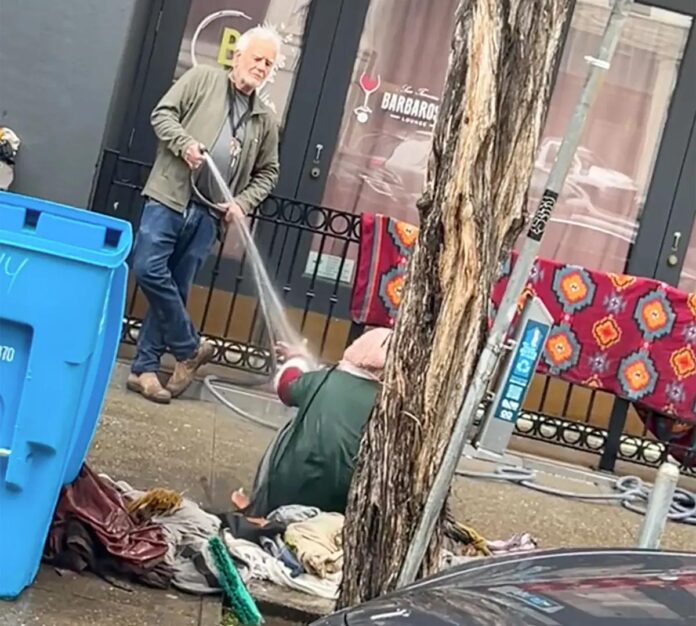The San Francisco gallerist who was arrested earlier this year after a video of him spraying an unhoused woman with a garden hose went viral has agreed to complete volunteer hours to avoid a possible trial and, if convicted, prison time.
In January, the San Francisco Police Department opened an investigation after Collier Gwin, who owns Foster Gwin (a gallery in the city’s Jackson Square neighbourhood), was filmed spraying a woman seated on the sidewalk outside of the gallery. San Francisco District Attorney Brooke Jenkins called the attack “completely unacceptable”. Gwin was charged with misdemeanor battery and faced up to six months in prison.
In a deal with the San Francisco District Attorney’s Office announced Monday (10 July), Gwin will complete 35 hours of volunteering at Third Baptist Church, San Francisco’s oldest African-American church. Charges against Gwin will be dismissed after he completes the hours, Gwin’s lawyer said.
After the video went viral, the Foster Gwin gallery was vandalised and its windows were smashed. Gwin initially defended his actions, saying he and neighbours had previously reported concerns about the woman, who he said suffered from a mental illness.
“I find it hard to apologise when we’ve had no help with the situation,” he told local news station ABC7 before his arrest. According to a statement from Gwin’s lawyer, the woman was known in the neighbourhood for being disruptive and severely ill. The woman declined to press charges, refused city services and days later was placed on an involuntary psychiatric hold.
Gwin later apologised in a video statement, and asked viewers to “try to better understand my breaking point by looking at sudden reactions they might have had in their own life and how they may have strongly overreacted and now feel so humbled and sorry”, Gwin said.
In a statement Monday, Gwin said the city of San Francisco should also be held accountable.
“Regular citizens are not equipped to deal with these types of problems. At the very least, the city should provide safe and clean streets and sidewalks in exchange for our tax dollars. It is a minimal duty,” Gwin said.
San Francisco for decades has faced a housing shortage and increased costs of living that have exacerbated homelessness, which has only worsened since the onset of the Covid-19 pandemic. About 7,800 citizens of San Francisco are unhoused, according to city figures from 2022.

























